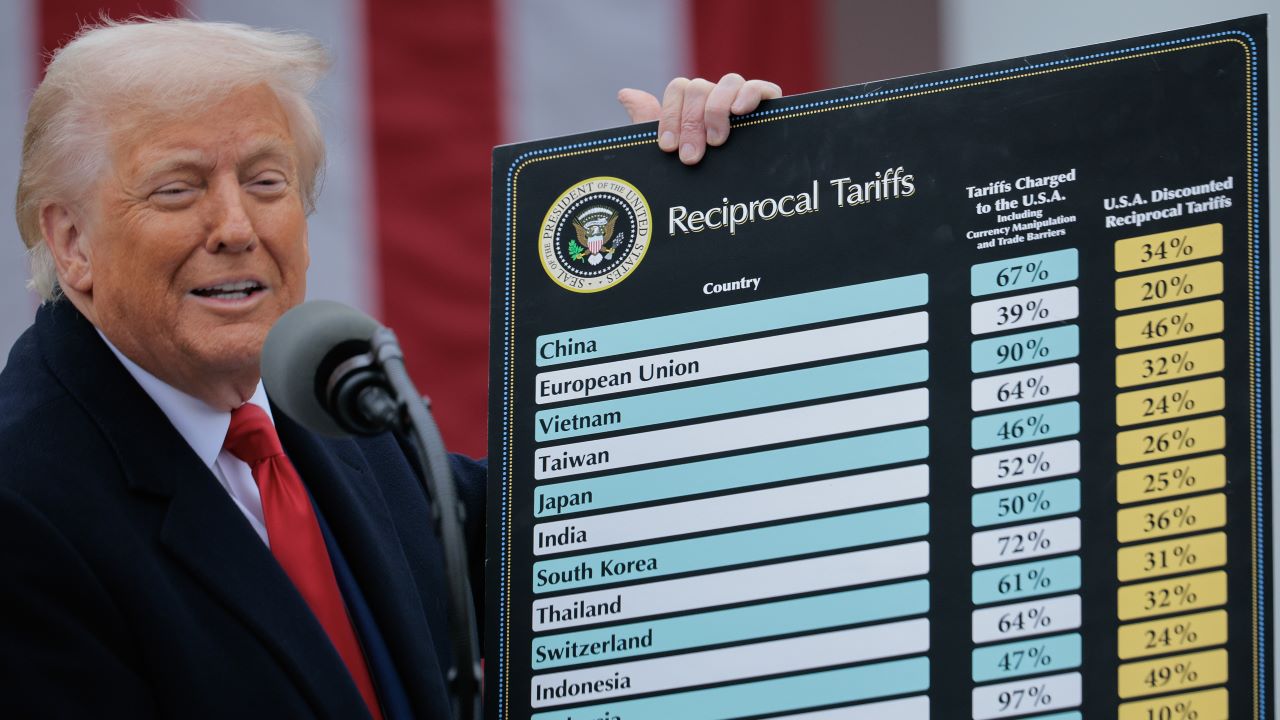US, Argentina strike sweeping trade deal cutting tariffs, opening markets to US exports
Argentina and U.S. sign trade agreement cutting tariffs on American exports including medicines, machinery and agricultural goods in new partnership.
Trump threatens 50% tariff on Canadian aircraft in escalating Gulfstream certification fight
President Trump threatened a 50% tariff on Canadian aircraft unless Canada approves Gulfstream jets, accusing Ottawa of "illegally" blocking U.S. plane certification.
Tariffs may have cost US economy thousands of jobs monthly, Fed analysis reveals
A new Fed study estimates tariffs cost the U.S. economy 19,000 jobs per month in 2025, potentially raising unemployment by 0.1 percentage points.
US-South Korea trade tensions flare over treatment of American tech firms including Coupang
Trump raises tariffs on South Korean goods from 15% to 25% over alleged trade violations, escalating diplomatic tensions between Washington and Seoul.
GM takes $7B hit after shifting EV strategy due to slowing demand
GM takes massive $7.2B charge to realign electric vehicle strategy following Trump administration policy changes and declining consumer demand for EVs.
Kevin O'Leary warns Canada over China ties as Trump threatens 100% tariff on northern neighbor
Kevin O'Leary warns Canada against China trade deal, saying it has "screwed" every business partner as President Donald Trump threatens 100% tariffs on Canadian goods.
Trump drops Europe tariff threats after reaching deal on Greenland framework
President Donald Trump announced he will no longer move forward with tariffs on a group of European allies after reaching an agreement on a future framework for Greenland.
European Parliament halts work on US trade deal in response to Trump Greenland push
European Parliament halts U.S.-EU trade talks, accusing Washington of threatening Denmark and Greenland's sovereignty through tariff measures.
LARRY KUDLOW: One year later – promises made, promises kept
President Trump had an extraordinary first year, defending America economically, militarily, and culturally
LARRY KUDLOW: President Trump is spot-on right to take over Greenland
President Trump is absolutely right to go after Greenland. And as he has said, he's open to negotiations. Something the lefty media is ignoring
EU planning emergency summit as Trump threatens tariffs over Greenland
EU calls emergency meeting after Trump threatens tariffs on countries opposing his Greenland plans. European leaders rally behind Denmark in solidarity.
Trump threatens tariffs on countries opposing Greenland takeover plans
President Donald Trump threatens tariffs on countries opposing his Greenland acquisition plans, citing national security needs for the strategic Arctic territory.
Trump credits tariffs for hundreds of billions gained with 'virtually no inflation,' touts security
Trump claims tariffs drove "historic" economic gains after the U.S. and Taiwan announced a massive $500 billion semiconductor deal to rebuild domestic manufacturing.
US, Taiwan come to $250B 'America First' tariff deal over semiconductors
Taiwan and the United States came to an agreement on tariffs for semiconductors on Thursday, capping reciprocal tariffs at 15% and incentivizing investment in U.S. manufacturing.
Prediction market traders bet against Trump's tariffs as Supreme Court ruling looms
Prediction markets slash odds on a Trump tariff victory as the Supreme Court ruling looms. Kalshi and Polymarket bettors give just a 32% chance of success.
Supreme Court expected to rule Friday on Trump's power to impose tariffs
Educational toy maker and wine importer challenge President Donald Trump's tariff authority in a Supreme Court case that could determine fate of record trade revenue.
Trump administration scales back proposed tariffs on Italian pasta makers following review
The U.S. backed down on proposed tariffs threatening some Italian pasta makers, slashing duties from up to 92% to as low as 2.26% after preliminary review.
US economy expected to grow faster in 2026 despite stagnant job market: Goldman Sachs
Goldman Sachs economists predict U.S. economic growth will accelerate to 2.6% in 2026, driven by tax cuts, reduced tariff drag and Federal Reserve rate cuts.
Navarro warns US economy in 'perilous situation' as Supreme Court weighs Trump tariff powers
The Supreme Court will decide the fate of Trump tariffs as Peter Navarro warns of serious economic peril without crucial trade protection measures for America.
Canada's Carney expected to meet Trump at World Cup draw amid stalled trade talks
Canadian PM Mark Carney expected to meet President Donald Trump at FIFA World Cup draw amid stalled trade talks and ongoing tariff tensions affecting Canada's GDP.



















